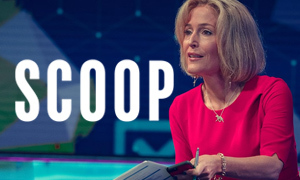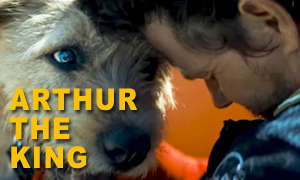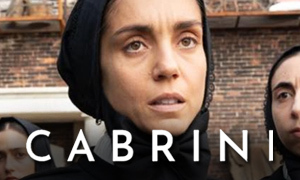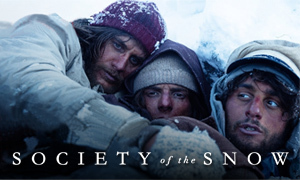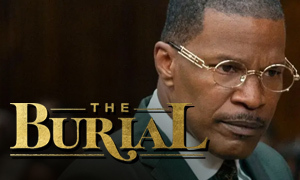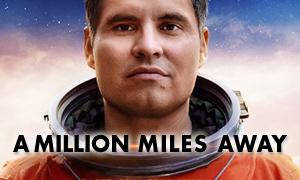Tetris: History vs. Hollywood
Taron Egerton
Born: November 10, 1989
Birthplace:
Birkenhead, Cheshire, England, UK
Henk Rogers
Born: December 24, 1953
Birthplace: Amsterdam, Netherlands
Bio: Founder of Bullet-Proof Software | Game Publisher who Tried to Secure Tetris Rights
Nikita Efremov
Born: May 30, 1988
Birthplace:
Moscow, Russian SFSR, USSR
Alexey Pajitnov
Born: April 16, 1955
Birthplace: Moscow, Russian SFSR, USSR
Bio: Tetris Creator
Toby Jones
Born: September 7, 1966
Birthplace:
Hammersmith, London, England, UK
Robert Stein
Birthplace: Hungary
Death: 2018
Bio: Owner of Andromeda Software | Secured Computer and Arcade Rights to Tetris
Oleg Stefan
Born: September 7, 1959
Birthplace:
Stalino, Ukrainian SSR, USSR
Nikolai Belikov
Bio: Director of Russian Organization ELORG | Negotiated Tetris Rights
Roger Allam
Born: October 26, 1953
Birthplace:
London, England, UK
Robert Maxwell
Born: June 10, 1923
Birthplace: Slatinské Doly, Czechoslovakia
Death: November 5, 1991, Atlantic Ocean Near Canary Islands, Spain (heart attack,accidental drowning)
Bio: Owner of Maxwell Corporation that Bought Tetris Computer Rights off Robert Stein
Anthony Boyle
Born: June 8, 1994
Birthplace:
Belfast, Northern Ireland, UK
Kevin Maxwell
Born: 1959
Birthplace: Maisons-Laffitte, France
Bio: Son of Robert Maxwell
Togo Igawa
Born: September 26, 1946
Birthplace:
Shibuya, Tokyo, Japan
Hiroshi Yamauchi
Born: November 7, 1927
Birthplace: Kyoto, Empire of Japan
Death: September 19, 2013, Sakyō-ku, Kyoto, Japan (complications from pneumonia)
Bio: President of Nintendo Co. Ltd.
Ben Miles
Born: September 29, 1966
Birthplace:
Wimbledon, London, England, UK
Howard Lincoln
Born: February 14, 1940
Birthplace: Oakland, California, USA
Bio: Chairman of Nintendo of America
Ken Yamamura
Born: January 21, 1986
Birthplace:
Osaka, Japan
Minoru Arakawa
Born: September 3, 1946
Birthplace: Kyoto, Japan
Bio: President of Nintendo of America
Ayane Nagabuchi
Born: March 17, 1988
Birthplace:
Setagaya City, Tokyo, Japan
Akemi Rogers
Birthplace: Japan
Bio: Henk Rogers' Wife
Kanon Narumi
Birthplace:
London, England, UK
Maya Rogers
Born: abt 1983
Bio: Henk Rogers' Daughter | Future President and CEO of the Tetris Company
Matthew Marsh
Born: July 8, 1954
Birthplace:
London, England, UK
Mikhail Gorbachev
Born: March 2, 1931
Birthplace: Privolnoye, Russian SFSR, Soviet Union
Death: August 30, 2022, Moscow, Russia
Bio: Final Leader of Soviet Union
Sofya Lebedeva
Born: December 14, 1993
Birthplace:
Obninsk, Kaluzhskaya oblast, Russia
Ola
Birthplace: Russian SFSR, Soviet Union
Bio: Henk Rogers' Translator in Russia
Was Henk Rogers a former game developer?
Yes. A Tetris movie fact-check confirms that Henk Rogers had developed games for his company, Bullet-Proof Software, a Japanese game publisher. Born in the Netherlands, Henk Rogers grew up in the United States and met his wife Akemi, a Japanese woman, while going to college at the University of Hawaii. Rogers moved to Japan with Akemi, and it was there he became involved in game development, forming his own company, Bullet-Proof Software. He created a turn-based RPG called The Black Onyx, which, by 1984, had become the bestselling computer game in Japan.
By 1985, Rogers had become enthralled with the Nintendo Famicom and was determined to create a game for the console. After reading that Nintendo's president, Hiroshi Yamauchi, was a fan of the strategy board game Go, he set out to develop a version of the game for the Famicom and received an advance of $300,000 from Nintendo. Rogers created the game and became an official Nintendo licensee. By 1988, he had become more interested in publishing than developing video games. He attended trade shows in search of the next hit game to sell in Japan. -Gaming Historian
Did Alexey Pajitnov create Tetris in his spare time?
Yes. The true story behind the Tetris movie on Apple TV+ confirms that Alexey Pajitnov was a computer scientist at the Moscow Academy of Sciences who created Tetris in his spare time in the summer of 1984 (Gaming Historian). He was inspired by a game called Pentominoes, which features Tetris-like pieces that you place in a puzzle box. He imagined the game's pieces falling down a computer screen, with the player having to maneuver them as they're falling so they land in the right spot. Alexey told Destructoid that it took him "maybe two weeks" to create the principle part of the game.
After creating the game, Alexey gave copies to a few of his friends and it began to catch on. According to Tetris history, it wasn't long before nearly every computer in every office in Moscow had Tetris on it, and by 1986, it spread like wildfire throughout the Soviet Union. -Tetris: The Games People Play
How did Alexey Pajitnov come up with the name "Tetris"?
In researching how accurate is Tetris on Apple TV+, we learned that, like in the movie, Pajitnov combined the Greek word "Tetra," meaning four, with the name of his favorite sport, "Tennis."
Did the real Henk Rogers wear cowboy boots?
No. "I didn't wear cowboy boots," Rogers said during an SXSW red-carpet interview in Austin. "I have a ranch and I do have cowboy boots, but I stopped wearing them as soon as I didn't have a horse."
Is it true that as a citizen of communist Russia, Alexey Pajitnov could not profit from his game?
Yes. Despite the game being created by Alexey Pajitnov, he was left out in the cold when it came to profiting from the sale of the rights. As a communist country, the Soviet Union owned the rights to the intellectual property created by its citizens. Making matters worse, Alexey created the game on computers at the Moscow Academy of Sciences where he worked, another factor that made the game government property.
"Alexey, who is living in a communist society, [had] no aspirations to sell this," said Box Brown, author of Tetris: The Games People Play, an illustrated history of the game. "He couldn't because, in communist Russia, business was the business of the government."
How did Tetris first make its way outside Russia?
While conducting our Tetris movie fact vs. fiction analysis, we discovered that Alexey Pajitnov's boss at the Moscow Academy of Sciences sent Tetris to a similar organization in Budapest, Hungary, the Institute for Computer Science and Control (SZTAKI). They fell in love with it, so much so that several students at the institute even ported the game from the IBM PC to the Commodore 64 and Apple II.
While Hungary was also a communist society, it had passed major economic reforms to create a more open free market. One of its most popular exports was the Rubik's Cube, invented by Erno Rubik in 1974. Hungarian-born Robert Stein (portrayed by Toby Jones in the movie), owner of the British software company Andromeda Software, often visited the SZTAKI Institute of Computer Science looking for new games to market to the West to collect royalties on. During one such visit in 1986, he noticed someone playing Tetris in the corner of the computer lab. Stein wasn't a gamer, but he tried Tetris and was immediately hooked.
Robert Stein went to the director of the SZTAKI Institute who had the number to the Russian Academy of Sciences Telex machine, a device used to send electronic messages prior to the fax machine. Stein sent a Telex message stating that he wanted the rights to Tetris. The message was forwarded to Tetris' creator, Alexey Pajitnov. There was a back-and-forth over the rights to the game that concluded with Robert Stein falsely assuming he had secured the rights without ever having a signed document. Stein sold the game to the British-based Maxwell Communications Corporation which was founded by Robert Maxwell (father of the now-infamous Ghislaine Maxwell, girlfriend of convicted sex offender Jeffrey Epstein). They published the game for the PC via MirrorSoft, their software company in the UK, and Spectrum Holobyte, their U.S. company. It was marketed as an exotic Russian puzzle game from behind the Iron Curtain.
Stein received a message from the Russian technology organization ELORG, which accused him of selling Tetris illegally. MirrorSoft and Spectrum Holobyte released the game and it was a huge success, especially in the U.S. Four months after Tetris went on sale, Stein finally reached a deal with the Russians. Stein's Andromeda Software (and in turn MirrorSoft and Spectrum Holobyte) got the rights to Tetris for home computer systems, including being able to port Tetris to "different types of computers." Stein took this to mean home consoles as well. In his eyes, only the arcade and handheld rights were still up for negotiation. -Gaming Historian
How did Henk Rogers discover Tetris?
Like in the Tetris movie, the true story confirms that Bullet-Proof Software owner Henk Rogers had been living in Japan with his wife, Akemi, and children, including his daughter Maya, and was on the lookout for a video game that could shake up the market. He discovered Tetris in January of 1988 at the Winter Consumer Electronics Show in Las Vegas. The Russian game was being exhibited by the American software company Spectrum Holobyte (owned by Britain's Maxwell Communications Corporation). After playing it, he was hooked and couldn't get it out of his head.
"Tetris was probably the quietest game at the show," Rogers said later. "Even then, products were graphically exciting, but this game was a totally different thing. I wanted to play it because it struck some basic chord. I couldn't stop playing." He stood in line over and over, playing more than five times at the show.
Did Henk Rogers buy the console rights to Tetris in Japan from Atari?
Yes. At first, Rogers, whose company Bullet-Proof Software was based in Japan, tried to secure the Japanese rights to Tetris from U.S.-based Spectrum Holobyte. Rogers and Spectrum Holobyte's CEO, Gilman Louie, signed a letter of intent for Bullet-Proof Software to publish Tetris on almost every platform in existence in Japan. However, when Gilman Louie phoned MirrorSoft, Spectrum Holobyte's UK counterpart, to tell them the news, MirrorSoft founder Jim Mackonochie told Louie that the arcade and console rights for Japan had already been sold to Atari Games. Louie explained to Rogers that he could have the PC rights, but if he wanted the arcade and console rights, he would have to get them from Atari.
Rogers contacted Atari about the Japanese rights but they turned him down. He then flew to California and waited in the Atari Games parking lot. He spotted the Atari Games president leaving for the day and approached him to make his pitch. The two men negotiated the details over a Sushi dinner. Rogers discovered that Atari couldn't sell him the arcade rights because Atari had already sold them to SEGA. However, they did agree to sell him the console rights to Japan for $300,000.
Rogers released the game in Japan on eight different personal computer platforms. When sales weren't impressive, he contacted Nintendo president Hiroshi Yamauchi in hopes that he could help sell the game. Yamauchi handed Tetris over to one of his designers, Shigeru Miyamoto, who assured him it was a good game because Yamauchi's secretaries and accountants had quickly become hooked on it. Yamauchi agreed to help Rogers push sales of Tetris, and orders for the game more than quadrupled. In December 1988, Bullet-Proof Software released the game for the Nintendo Famicom. It became the console's bestselling game of all time.
Was it Henk Rogers' idea for Nintendo to package Tetris with its handheld console Game Boy?
Yes. By 1988, it had become standard for Nintendo to package its consoles in America with a game. The Nintendo Entertainment System had been packaged with Super Mario Bros. and Duck Hunt. Nintendo was on the verge of releasing the handheld console Game Boy but wasn't sure which game to include. A Tetris movie fact-check verifies that during a meeting with Nintendo of America's president, Minoru Arakawa, Henk Rogers suggested bundling the Game Boy with Tetris. He said almost word for word what he says in the movie. "If you include Mario, the Game Boy will be for little boys, but if you include Tetris, the Game Boy will be for everybody," Rogers told him. Rogers offered to help secure the handheld rights to Tetris in North America, knowing that he could make millions on the deal.
Henk Rogers knew that he needed to talk to the man who had secured the rights to Tetris from Russia, Robert Stein. He offered Stein $25,000 in advance for the handheld rights. The only problem was that Stein had yet to secure the handheld or arcade rights from Russia. The British company MirrorSoft had also been calling Stein for the handheld rights. Stein was having no luck with Russia because somehow in the messy web of licensing agreements, Russia ended up not getting paid. Making matters worse was the fact that unlicensed arcade versions of Tetris were already being sold. Nikolai Belikov, the cutthroat director of the Russian technology organization ELORG, was given the job of sorting out the confusion. Desperate to get the handheld licenses, Robert Stein flew to Moscow to meet with Belikov to sort things out.
Did Henk Rogers go to Russia to secure the handheld rights to Tetris?
Yes. After learning that Robert Stein had yet to secure the handheld rights to Tetris, Henk Rogers decided it would be best to deal directly with Russia. As seen in the Tetris movie, the true story corroborates that Rogers didn't trust Stein. Complicating matters was the fact that Spectrum Holobyte, the company Stein had sold the PC and console rights to, was trying to sell the handheld rights to Nintendo. Henk Rogers assured Nintendo that Spectrum Holobyte did not own the handheld rights.
Henk Rogers headed to Moscow to secure the handheld rights. At the same time, Spectrum Holobyte's sister company in the UK, MirrorSoft (also owned by the Maxwell Corporation), heard about Nintendo's interest in the handheld rights. MirrorSoft sent Kevin Maxwell, the son of the Maxwell Corporation's owner, Robert Maxwell, to Russia. The Maxwell Corporation had relationships with Russian diplomats and would have much more sway in securing the handheld and arcade rights. It's true that in February of 1989, all three men (Henk Rogers, Robert Stein, and Kevin Maxwell) flew to Moscow to negotiate with Nikolai Belikov for the handheld rights to Tetris.
Did Henk Rogers arrive in Moscow without any clue where to go?
Yes. In researching the Tetris true story, we learned that Henk Rogers was aware that Robert Stein was planning to negotiate with ELORG, the state-owned Russian organization that handled the importing and exporting of technology. However, he didn't know where the negotiations were taking place. To get information, he tried to befriend some locals by playing Go, a strategy board game, but his efforts got him nowhere. He decided to hire an interpreter and spent a day riding around Moscow before they finally discovered the location of ELORG. Rogers walked into the building and asked to talk to someone about the rights to Tetris. Normally, it was against protocol to talk to a foreigner who didn't have proper clearances, but Nikolai Belikov was curious and decided to meet him. After all, a third contender for the Tetris rights would up the stakes of his negotiations. -Gaming Historian
Is Henk Rogers' translator, Sasha, based on a real person?
Yes. As indicated in the Tetris cast vs. real people section at the top of this page, Sasha (Sofya Lebedeva) was inspired by Henk Rogers' real-life translator, a woman named Ola. It's true that she was a KGB agent, but according to Henk, he was well aware of this from the moment he hired her.
"Finally, I hired an interpreter from a booth in the lobby of my hotel," Henk wrote in a 2014 article for The Guardian. "They were all KGB, but she was beautiful and very perky, when everybody else was doom and gloom. She took me to ELORG, but she wouldn't take me in because I hadn't been officially invited. I was breaking a cardinal rule – trying to do business on a tourist visa – but I told her I hadn't come all this way for nothing."
Was Russian leader Mikhail Gorbachev aware of the negotiations?
Yes. Gorbachev kept a close eye on Nikolai Belikov's handling of the negotiations. Belikov worked for ELORG (Elektronorgtechnica), a state-owned organization in Russia that handled the exporting and importing of computer software and hardware. Up until 1989, ELORG was controlled by the Soviet Union's Ministry of Foreign Trade. It's true that Belikov's basic strategy at the negotiating table was to keep demanding more and more money for the rights to Tetris.
Was the Russian Nikolai Belikov unaware that Henk Rogers and Nintendo had been selling Tetris as a console game?
Yes. When Henk Rogers met Nikolai Belikov of ELORG to negotiate the handheld rights to Tetris, he showed Belikov a Tetris cartridge for the Nintendo Famicom, telling Belikov that they were the biggest publisher of Tetris in the world. A fact-check confirms that Belikov was confused and grew angry, telling Rogers that ELORG hadn't given the console rights to anyone. Rogers outlined the chain of licensing and sub-licensing that gave him the console rights, starting with Robert Stein's Andromeda Software.
The problem was Robert Stein's willful misinterpretation of his deal for the rights to Tetris on "different types of computers." Stein interpreted the language of his deal with the Russians to mean consoles as well. Belikov explained to Rogers that Stein had only been given the PC rights and nothing else. -Gaming Historian
Did Henk Rogers fear that the Russians may punish him for selling a console version of Tetris?
To some degree, yes. Once Henk Rogers learned that the Russians had never actually sold the console rights, he realized that he had a bigger problem on his hands. He had gone to Moscow to secure the handheld rights but was now in danger of losing everything. The Tetris true story reveals that Rogers did fear that he could end up in "some gulag" if he couldn't get the rights, especially since he had been illegally selling the console version via Nintendo. -Gaming Historian
Did Henk Rogers and Tetris creator Alexey Pajitnov become fast friends?
Yes. During Henk Rogers' second meeting with ELORG, both Nikolai Belikov and Alexey Pajitnov were present, as well as several other members of ELORG. Henk Rogers was alone at the table. He explained the video game business, and ELORG showed him their contract with Robert Stein. As Rogers reviewed it, he spotted the line that was causing the problem. The contract stated that Robert Stein had the rights to port Tetris to "different types of computers." The Russians saw this as meaning different types of personal computers, while Stein interpreted the language loosely and was defining a home console as a "type of computer."
Henk Rogers presented in detail his offer for the handheld rights to Tetris. ELORG was impressed, especially given the fact that ELORG had only been making a percent of a percent on their deal with Robert Stein. With Rogers' offer, they would get a fixed amount on each cartridge sold. In answering the question, "Is the Tetris movie accurate?" we discovered that it's true that Alexey Pajitnov took a liking to Rogers. After all, Henk Rogers had been a rather successful game developer as well. Belikov wanted to move forward with the deal. After the meeting, Pajitnov and Rogers kept talking. "Somehow we liked each other almost immediately," said Rogers. "He was the friend I was looking for in Russia." They hung out that night and Pajitnov gave Rogers a tour of Moscow that included discussions over vodka. -Gaming Historian
Was Henk Rogers' wife Akemi approached by KGB agents?
During our exploration into the Tetris backstory, we learned that the KBG did in fact send two agents to the Bullet-Proof Software office in Tokyo. The real Henk Rogers mentions this in an essay he wrote for The Guardian. "The KGB even sent two agents to my office in Tokyo. Because I'd had no contact with my staff, they thought: 'Oh my God, what's happened to Henk?'" It's unclear whether it was Henk's wife Akemi who they approached. In the movie, Akemi (Ayane Nagabuchi) is visited by two Russian men who are looking for Henk. Alexey Pajitnov (Nikita Efremov) also tells Henk that "the most powerful men in Communist Party are watching you and your family." While the KGB did visit Henk's Tokyo office, their role in the movie is significantly exaggerated to make them a bigger villain in the Tetris story.
Was Robert Stein required to sign an amendment to his original contract with the Russian organization ELORG?
Yes. Like in the Apple TV+ movie, when Robert Stein met with Nikolai Belikov at ELORG in Moscow, Belikov demanded that ELORG be paid the late payments they were owed. When examining the Tetris fact vs. fiction, we learned that Belikov presented Stein with a backdated amendment to their original contract. The amendment outlined hefty penalties for late payments. It also now clearly defined a computer system as consisting "of a processor, monitor, disk drive(s), keyboard, and operating system," a line that Stein overlooked when he read it. He had been too focused on the substantial late payments and getting to the negotiations for the arcade and handheld rights. However, the new wording meant that Stein could no longer try and claim he had the console rights.
Belikov told Stein that he wasn't ready to sell the handheld rights but they could make a deal for the arcade rights. Stein agreed to pay ELORG $150,000 for advanced royalty payments for the arcade rights. While it was a high price, it meant that Stein could avoid licensing issues for SEGA and Tengen's arcade versions of the game. -Gaming Historian
Did Kevin Maxwell's ignorance of the situation cause him to largely blow his meeting with ELORG?
Yes. During Kevin Maxwell's meeting at ELORG, Nikolai Belikov showed him a Tetris cartridge for the Nintendo Famicom console. Maxwell had no idea what it was despite the fact that his own company, MirrorSoft, had sold the console rights to Tetris in Japan to Atari Games, which had subsequently sold the rights to Henk Rogers' Bullet-Proof Software (Rogers teamed up with Nintendo to sell the game). Yet, Kevin Maxwell didn't recognize the cartridge and assumed it was a pirated copy of Tetris. He didn't even seem to understand that his own company had claimed to own the console rights in addition to the PC rights.
Instead of completely blowing off Kevin Maxwell, whose family had deep pockets and ties to Russian officials, Belikov told him that he should make an offer for the console rights. Belikov was confident that Robert Stein would sign the amendment to his contract for the computer rights. The amendment clearly defined a computer and clarified that no one had the console rights to Tetris. Belikov presented a deal to Kevin Maxwell. MirrorSoft would get a right of first refusal to any new rights to Tetris, and in exchange, ELORG would get the publishing rights to several Maxwell Corporation encyclopedias and reference books. Maxwell was happy with the arrangement, not realizing his ignorance with regard to the console rights and that his own company, MirrorSoft, believed they already owned them.
After making a deal with Henk Rogers for the handheld rights, did ELORG ask Rogers to make a bid for the console rights as well?
Yes. Nikolai Belikov of the Russian organization ELORG was happy with his deal with Henk Rogers to give Rogers and Nintendo the handheld rights to Tetris. He was so pleased that he asked Rogers to make him an offer for the home console rights. He gave Rogers and Nintendo three weeks to present the deal in writing. Rogers headed back home to Japan and discussed the home console rights with Nintendo, something they didn't even realize was up for grabs.
On behalf of Nintendo, Henk Rogers headed back to Moscow to make a formal offer for the home console rights. Accompanying him was a high-profile attorney who was fluent in Russian and had previously worked in the Soviet Union. The offer they presented in writing to ELORG was a guaranteed $5,000,000. ELORG, who had given Kevin Maxwell and MirrorSoft the right of first refusal, sent a Telex message to MirrorSoft, giving them one day to present a counteroffer. When ELORG got no reply, they proceeded to close the deal with Nintendo. Because of the substantial amount of money in the deal, an employee of Nintendo had to sign the contract.
Nintendo of America Vice President Howard Lincoln and President Minoru Arakawa traveled to Moscow themselves to close the deal. They went in secret so that Atari Games, who falsely believed that they held the Tetris console rights for America, wouldn't find out. During the negotiations, Howard Lincoln suggested that Tetris creator Alexey Pajitnov be given royalty payments as well, but Nikolai Belikov scoffed at the notion, saying that Pajitnov had used government computers to create the game.
During the final stage of negotiations, MirrorSoft founder Jim Mackonochie finally responded to the Telex message. He stated that he was confident MirrorSoft already had the console rights, a claim that held no merit, especially given Robert Stein's newly amended contract with ELORG. Belikov proceeded to close the deal with Nintendo. He sent Telex messages to MirrorSoft and Robert Stein, letting them know that both the console and handheld rights to Tetris were now owned by Nintendo. -Gaming Historian
Was Robert Stein upset over the news that ELORG had sold the console and handheld rights to Tetris to Nintendo?
Yes. While studying the Tetris movie fact vs. fiction, we discovered that Robert Stein admitted to being careless when it came to valuing what the Russians wanted in return. However, he also claimed to be the victim of cheating, lying, and backstabbing, accusing Henk Rogers of helping the Russians come up with his amended contract. He also lashed out at Kevin Maxwell, stating that Maxwell's meeting with Nikolai Belikov of ELORG had "screwed everyone over." For Kevin Maxwell to tell Belikov that MirrorSoft would entertain a deal for the console rights to Tetris meant that Maxwell was so uninformed that he didn't understand that his own company, MirrorSoft, already owned the console rights (at least everyone at MirrorSoft believed that they did). MirrorSoft would have had a better position legally if Maxwell had simply told Belikov that the console rights already belonged to MirrorSoft.
Did an irate Robert and Kevin Maxwell get Soviet authorities involved?
Yes. Kevin Maxwell utilized the Maxwell Corporation's ties to the Russian government and got Soviet authorities involved. The Russian government questioned Nikolai Belikov and reviewed his files. Belikov didn't waver. It's true that when Kevin Maxwell told his father Robert about the botched deal, his father "went apeshit." Robert Maxwell contacted Soviet General Secretary Mikhail Gorbachev. However, Gorbachev was dealing with more pressing matters given that his country was on the verge of collapse. Gorbachev told Maxwell, "You should no longer worry about the Japanese company." Realizing there was little more that could be done, MirrorSoft bowed out of the fight for the Tetris rights. -Gaming Historian
Are the Russian double agents in the movie true to real life?
No. Here again, writer Noah Pink and director Jon S. Baird are attempting to spice up the intrigue by adding more fiction. There were no Russian double agents in the Tetris true story, nor were there the over-the-top antagonists we see in the movie.
Did the car chase happen in real life?
No. A Tetris fact-check reveals that the scene in the Apple TV+ movie where Tetris creator Alexey Pajitnov (Nikita Efremov) is behind the wheel accompanied by Henk Rogers (Taron Egerton) and two Nintendo dealmakers as corrupt KGB officials tail them is purely fictional. No such event ever took place in real life, but it works in the movie because it's played for laughs (a Russian cover of "Holding Out for a Hero" plays loudly and further sets the comedic tone of the scene). -IGN
Did Henk Rogers have to race against the clock to secure the deal before the fall of Soviet Russia?
No. Henk Rogers (Taron Egerton) becoming trapped in Soviet Russia and having to make it out with the rights to Tetris before the fall of communism is an Argo-esque aspect that wasn't part of the true story, which mainly involved contract negotiation and bickering over terminology. There was no race-to-a-plane-to-make-it-out-in-time moment in real life.
Was Atari Games forced to stop selling Tetris for the NES?
Yes. Nintendo of America sent Atari Games a cease and desist order with regard to the sale of Tetris cartridges for the NES (or any other home system) under Atari's Tengen brand. Tengen replied by saying that they had "received all NES rights to the game Tetris in early 1988." Atari Games sued Nintendo for infringing on their licensing deal and the battle headed to the courts. Atari had already spent substantial amounts of money marketing the game and had produced 300,000 game cartridges to be sold. Despite the legal dispute, Tengen went ahead and released Tetris for the NES on May 17, 1989 and moved 150,000 copies in a matter of weeks.
Nintendo of America Vice President Howard Lincoln headed back to Moscow, accompanied by a team of lawyers. They interviewed Tetris creator Alexey Pajitnov, ELORG's director Nikolai Belikov, and others. They analyzed the contracts between Robert Stein and ELORG. Ultimately, when the court date arrived, Nintendo prevailed, largely due to the fact that Robert Stein had signed the amended contract that specifically defined a home computer system, clearly differentiating it from a home console. Tengen was forced to stop selling Tetris and ended up destroying approximately 150,000 cartridges. In November 1989, Nintendo released Tetris for the NES, approximately four months after it had released its handheld console Game Boy, which was bundled with the game. -Gaming Historian
Did Alexey Pajitnov ever receive money for Tetris?
For years, Alexey Pajitnov watched as his game created significant profits for other companies, including Andromeda Software, MirrorSoft, Atari Games, and Nintendo, while he received nothing. As a citizen of communist Russia, he was unable to profit from Tetris. Instead, the share of the profits sent back to Russia went to the state.
Henk Rogers knew the situation hadn't been fair to Pajitnov and was determined to help his friend. In researching the Tetris history, we discovered that in 1991, Rogers helped Pajitnov immigrate to the Seattle area with his family. Pajitnov founded his own software company called AnimaTek. When the rights to Tetris expired in 1995, Pajitnov had the opportunity to finally profit from the game he invented. By then, the Russian organization ELORG had become a private company, still run by Nikolai Belikov. ELORG purchased fifty percent of the Tetris rights. Henk Rogers and Alexey Pajitnov became partners and formed The Tetris Company, buying the other fifty percent. Finally, after 13 years, Alexey Pajitnov began to receive royalties for the game he created. In 2005, Belikov sold his half of the shares to The Tetris Company, giving them full ownership of the rights to the game.
Alexey Pajitnov went to work for Microsoft in 1996 and designed several more puzzle games, but none were nearly as successful as Tetris. He parted ways with Microsoft in 2005, focusing on his own projects and still collecting the Tetris royalties. -Gaming Historian
How many Tetris games have been sold?
In March 2022, Business Insider ranked Tetris as the bestselling video game franchise of all time at 496.4 million units sold. Call of Duty came in second at 400 million units sold and the Super Mario franchise third at 387.7 million units. However, according to The Gamer, if you count all Mario games as a single franchise, Mario easily takes the number one spot at 740 million units sold.
Was the Tetris movie shot in Russia?
No. The movie was shot in Scotland, where production designer Dan Taylor was able to effectively re-create Russia, England, Japan, and other locations, making them believable enough that most people won't know the difference.
Overall, how accurate is the Tetris movie?
The Apple TV+ film exaggerates the Tetris story by turning the litigation around the video game's rights into a high-stakes political thriller that at times mirrors something out of a Jason Bourne movie. Henk Rogers being portrayed as a heroic figure who risked his life to secure the handheld and console rights for Tetris is beyond a stretch, but just like the filmmakers turning each chapter in the story into "Levels" and introducing the characters as players, it was done to try and turn a real-life tale about international video game rights into something far more exciting. Basically, how do you liven up what were essentially boardroom discussions? However, by the final act, the real-life events have disappeared too far from view and the movie embraces something more fantastical as it tries to amp up the fear and danger.
As one reviewer pointed out, when the Tetris movie sticks to the details of the story, it starts to resemble The Social Network but for video games. Pivotal real-life moments like the introduction of Nintendo's handheld Game Boy console feel revolutionary. Yet, the insertion of fictional elements like car chases and over-the-top KGB agents, as well as clichés like Henk missing his daughter's music recital because he's on his journey to bring Tetris to the masses, veer too far from the facts.
Where can I play Tetris for free online?
With all this talk of Tetris' history and the movie, you might be wondering where you can play Tetris online. No worries. You can Play Tetris for Free at the Official Tetris Website. Enjoy!
Link-to-Learn More:
